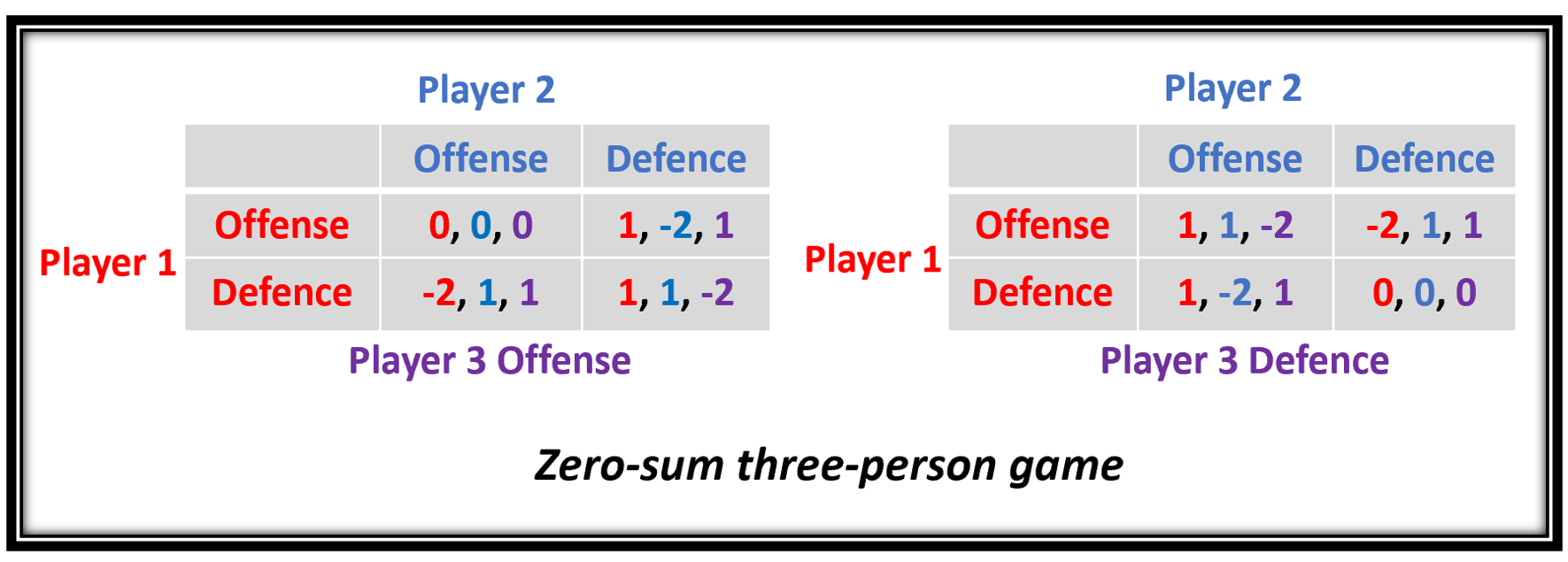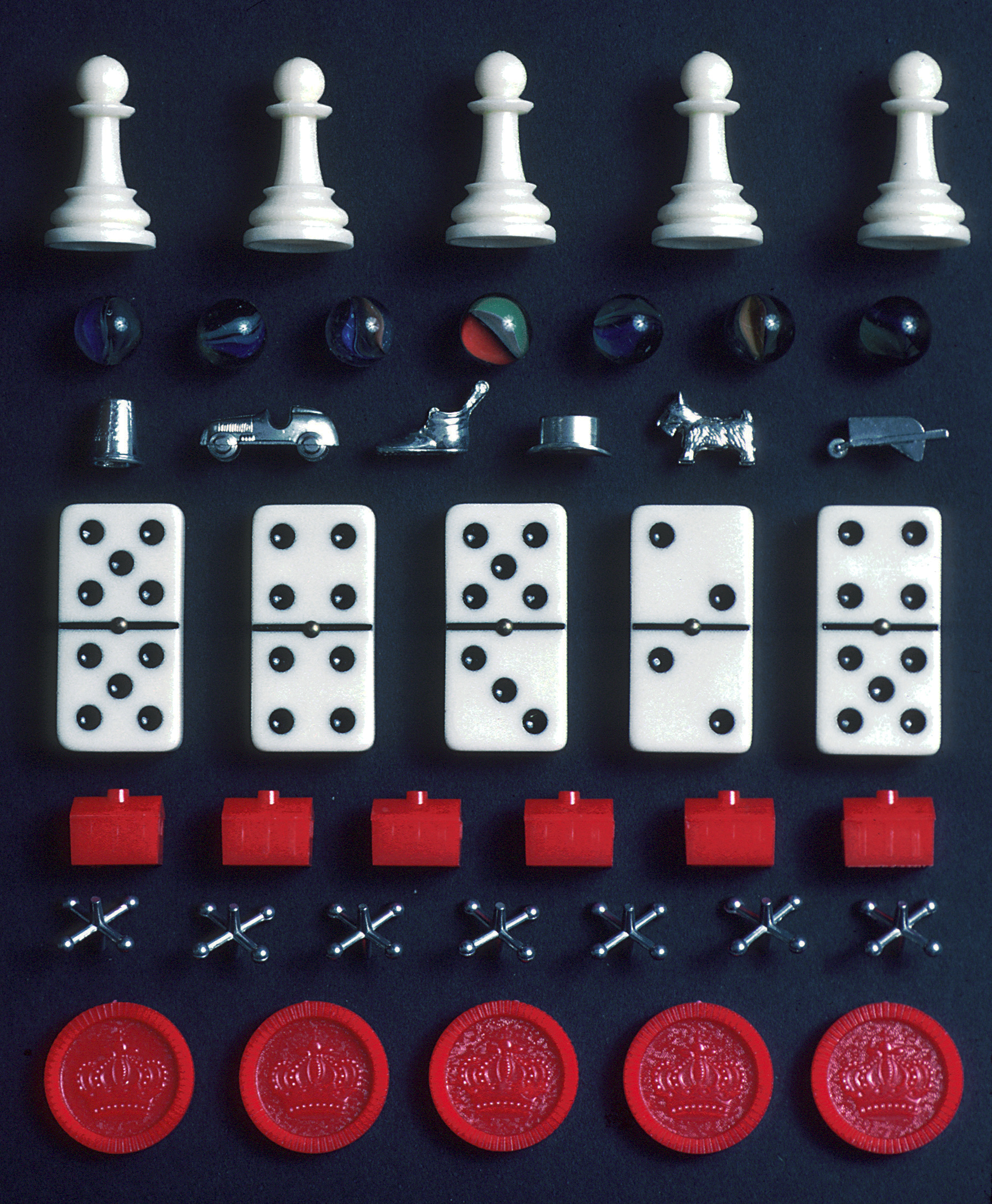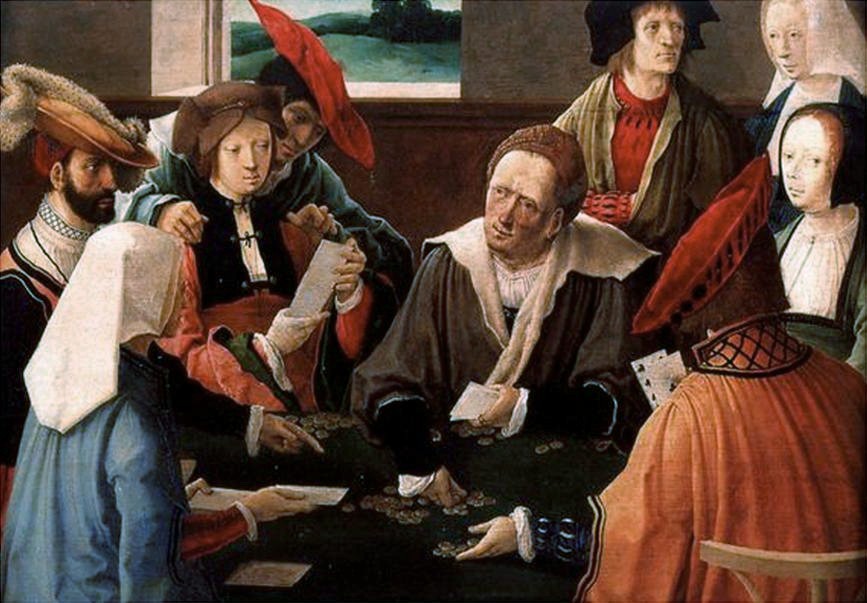|
Win–win Game
In game theory, a win–win game or win–win scenario is a situation that produces a mutually beneficial outcome for two or more parties. It is also called a positive-sum game as it is the opposite of a zero-sum game. If a win–win scenario is not achieved, the scenario becomes a lose–lose situation by default, since it had caused failure for at least one of the parties. While she did not coin the term, Mary Parker Follett's process of integration described in her book ''Creative Experience'' (Longmans, Green & Co., 1924) forms the basis of what we now refer to as the idea of "win-win" conflict resolution. See also * Abundance mentality *Game * Cooperative game * Group-dynamic game *Zero-sum game *No-win situation A no-win situation or lose–lose situation is an outcome of a negotiation, conflict or challenging circumstance in which all parties are worse off. It is an alternative to a win–win or outcome in which one party wins. Arbitration or media ... Referenc ... [...More Info...] [...Related Items...] OR: [Wikipedia] [Google] [Baidu] |
Game Theory
Game theory is the study of mathematical models of strategic interactions. It has applications in many fields of social science, and is used extensively in economics, logic, systems science and computer science. Initially, game theory addressed two-person zero-sum games, in which a participant's gains or losses are exactly balanced by the losses and gains of the other participant. In the 1950s, it was extended to the study of non zero-sum games, and was eventually applied to a wide range of Human behavior, behavioral relations. It is now an umbrella term for the science of rational Decision-making, decision making in humans, animals, and computers. Modern game theory began with the idea of mixed-strategy equilibria in two-person zero-sum games and its proof by John von Neumann. Von Neumann's original proof used the Brouwer fixed-point theorem on continuous mappings into compact convex sets, which became a standard method in game theory and mathematical economics. His paper was f ... [...More Info...] [...Related Items...] OR: [Wikipedia] [Google] [Baidu] |
Zero-sum Game
Zero-sum game is a Mathematical model, mathematical representation in game theory and economic theory of a situation that involves two competition, competing entities, where the result is an advantage for one side and an equivalent loss for the other. In other words, player one's gain is equivalent to player two's loss, with the result that the net improvement in benefit of the game is zero. If the total gains of the participants are added up, and the total losses are subtracted, they will sum to zero. Thus, Fair cake-cutting, cutting a cake, where taking a more significant piece reduces the amount of cake available for others as much as it increases the amount available for that taker, is a zero-sum game if marginal utility, all participants value each unit of cake equally. Other examples of zero-sum games in daily life include games like poker, chess, sport and Contract bridge, bridge where one person gains and another person loses, which results in a zero-net benefit for every ... [...More Info...] [...Related Items...] OR: [Wikipedia] [Google] [Baidu] |
Lose–lose Situation
A no-win situation or lose–lose situation is an outcome of a negotiation, conflict or challenging circumstance in which all parties are worse off. It is an alternative to a win–win or outcome in which one party wins. Arbitration or mediation may be used to avoid no-win outcomes and find more satisfactory results. In game theory In game theory, a "no-win" situation is a circumstance in which no player benefits from any outcome, hence ultimately losing the match. This may be because of any or all of the following: * Unavoidable or unforeseeable circumstances causing the situation to change after decisions have been made. This is common in text adventures. * ''Zugzwang'', as in chess, when any move a player chooses makes them worse off than before such as losing a piece or being checkmated. * A situation in which the player has to accomplish two mutually dependent tasks each of which must be completed before the other or that are mutually exclusive (a Catch-22). * Ignoranc ... [...More Info...] [...Related Items...] OR: [Wikipedia] [Google] [Baidu] |
Mary Parker Follett
Mary Parker Follett (3 September 1868 – 18 December 1933) was an American management consultant, social worker, philosopher and pioneer in the fields of organizational theory and organizational behavior. Along with Lillian Gilbreth, she was one of two great women management experts in the early days of classical management theory. She has been called the "Mother of Modern Management". Instead of emphasizing industrial and mechanical components, she advocated for what she saw as the far more important human element, regarding people as the most valuable commodity present within any business. She was one of the first theorists to actively write about and explore the role people had in ineffective management and discuss the importance of learning to deal with and promote positive human relations as a fundamental aspect of the industrial sector. Life Follett was born in 1868 in Quincy, Massachusetts, to a wealthy Quaker family. Her family was composed of Charles Allen Follett, a ... [...More Info...] [...Related Items...] OR: [Wikipedia] [Google] [Baidu] |
The 7 Habits Of Highly Effective People
''The 7 Habits of Highly Effective People'' is a business and self-help book written by Stephen R. Covey. First published in 1989, the book goes over Covey's ideas on how to spur and nurture personal change. He also explores the concept of effectiveness in achieving results, as well as the need for focus on character ethic rather than the personality ethic in selecting value systems. As named, his book is laid out through seven habits he has identified as conducive to personal growth. The seven habits The book is laid out through seven habits. Covey intends the first three as a means of achieving independence, the next three as a means of achieving interdependence, and the last, seventh habit as a means to maintain the previous. Be proactive Proactivity is about taking responsibility for one's reaction to one's own experiences, taking the initiative to respond positively and improve the situation. Covey postulates, in a discussion of the work of psychiatrist Viktor Frankl ... [...More Info...] [...Related Items...] OR: [Wikipedia] [Google] [Baidu] |
Game
A game is a structured type of play usually undertaken for entertainment or fun, and sometimes used as an educational tool. Many games are also considered to be work (such as professional players of spectator sports or video games) or art (such as games involving an artistic layout such as mahjong, solitaire, or some video games). Games have a wide range of occasions, reflecting both the generality of its concept and the variety of its play. Games are sometimes played purely for enjoyment, sometimes for achievement or reward as well. They can be played alone, in teams, or online; by amateurs or by professionals. The players may have an audience of non-players, such as when people are entertained by watching a chess championship. On the other hand, players in a game may constitute their own audience as they take their turn to play. Often, part of the entertainment for children playing a game is deciding who is part of their audience and who participates as a player. A ... [...More Info...] [...Related Items...] OR: [Wikipedia] [Google] [Baidu] |
Cooperative Board Game
Cooperative board games are board games in which players work together to achieve a common goal rather than competing against each other. Either the players win the game by reaching a predetermined objective, or all players lose the game, often by not reaching the objective before a certain event ends the game. Definition In cooperative board games, all players win or lose the game together. These games should not be confused with ''noncompetitive'' games, such as '' The Ungame'', which simply do not have victory conditions or any set objective to complete. While adventure board games with role playing and dungeon crawl elements like ''Gloomhaven'' may be included, pure tabletop role-playing games like '' Descent: Journeys in the Dark'' are excluded as they have potentially infinite victory conditions with persistent player characters. Furthermore, games in which players compete together in two or more groups, teams or partnerships (such as ''Axis & Allies'', and card games lik ... [...More Info...] [...Related Items...] OR: [Wikipedia] [Google] [Baidu] |
Group-dynamic Game
Team building is a collective term for various types of activities used to enhance social relations and define roles within teams, often involving collaborative tasks. It is distinct from team training, which is designed by a combination of business managers, learning and development/OD (Internal or external) and an HR Business Partner (if the role exists) to improve the efficiency, rather than interpersonal relations. Many team-building exercises aim to expose and address interpersonal problems within the group. Over time, these activities are intended to improve performance in a team-based environment. Team building is one of the foundations of organizational development that can be applied to groups such as sports teams, school classes, military units or flight crews. The formal definition of team-building includes: * aligning around goals * building effective working relationships * reducing team members' role ambiguity * finding solutions to team problems Team building is o ... [...More Info...] [...Related Items...] OR: [Wikipedia] [Google] [Baidu] |
Zero-sum Game
Zero-sum game is a Mathematical model, mathematical representation in game theory and economic theory of a situation that involves two competition, competing entities, where the result is an advantage for one side and an equivalent loss for the other. In other words, player one's gain is equivalent to player two's loss, with the result that the net improvement in benefit of the game is zero. If the total gains of the participants are added up, and the total losses are subtracted, they will sum to zero. Thus, Fair cake-cutting, cutting a cake, where taking a more significant piece reduces the amount of cake available for others as much as it increases the amount available for that taker, is a zero-sum game if marginal utility, all participants value each unit of cake equally. Other examples of zero-sum games in daily life include games like poker, chess, sport and Contract bridge, bridge where one person gains and another person loses, which results in a zero-net benefit for every ... [...More Info...] [...Related Items...] OR: [Wikipedia] [Google] [Baidu] |
No-win Situation
A no-win situation or lose–lose situation is an outcome of a negotiation, conflict or challenging circumstance in which all parties are worse off. It is an alternative to a win–win or outcome in which one party wins. Arbitration or mediation may be used to avoid no-win outcomes and find more satisfactory results. In game theory In game theory, a "no-win" situation is a circumstance in which no player benefits from any outcome, hence ultimately losing the match. This may be because of any or all of the following: * Unavoidable or unforeseeable circumstances causing the situation to change after decisions have been made. This is common in text adventures. * '' Zugzwang'', as in chess, when any move a player chooses makes them worse off than before such as losing a piece or being checkmated. * A situation in which the player has to accomplish two mutually dependent tasks each of which must be completed before the other or that are mutually exclusive (a Catch-22). * Ignora ... [...More Info...] [...Related Items...] OR: [Wikipedia] [Google] [Baidu] |
Game Theory Game Classes
A game is a structured type of play usually undertaken for entertainment or fun, and sometimes used as an educational tool. Many games are also considered to be work (such as professional players of spectator sports or video games) or art (such as games involving an artistic layout such as mahjong, solitaire, or some video games). Games have a wide range of occasions, reflecting both the generality of its concept and the variety of its play. Games are sometimes played purely for enjoyment, sometimes for achievement or reward as well. They can be played alone, in teams, or online; by amateurs or by professionals. The players may have an audience of non-players, such as when people are entertained by watching a chess championship. On the other hand, players in a game may constitute their own audience as they take their turn to play. Often, part of the entertainment for children playing a game is deciding who is part of their audience and who participates as a player. A toy and ... [...More Info...] [...Related Items...] OR: [Wikipedia] [Google] [Baidu] |
Personal Development
Personal development or self-improvement consists of activities that develops a person's capabilities and potential, enhance quality of life, and facilitate the realization of dreams and aspirations. Personal development may take place over the course of an individual's entire lifespan and is not limited to one stage of a person's life. It can include official and informal actions for developing others in roles such as a teacher, guide, counselor, manager, coach, or mentor, and it is not restricted to self-help. When personal development takes place in the context of institutions, it refers to the methods, programs, tools, techniques, and assessment systems offered to support positive adult development at the individual level in organizations. Overview Among other things, personal development may include the following activities: * Social entrepreneurship or civic engagement * Participating in festivals, conferences, or conventions * Improving self-awareness * Improvin ... [...More Info...] [...Related Items...] OR: [Wikipedia] [Google] [Baidu] |









